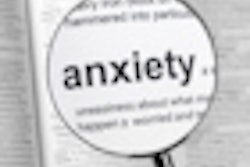Music can be effective for reducing pain in high-anxiety people who can easily become absorbed in cognitive activities, according to a study in the Journal of Pain, (December 2011, Vol. 12:12, pp. 1262-1273).
Researchers from the University of Utah Pain Research Center evaluated the potential benefits of music for diverting psychological responses to experimental pain stimuli. They hypothesized that music may divert cognitive focus from pain. If true, the key to successful pain control from this method would be the degree of engagement by the patient in the diversion task.
In the study, the researchers evaluated 143 subjects who were instructed to listen to music tracks, follow the melodies, and identify deviant tones. During the music tasks, they were given safe, experimental pain shocks with fingertip electrodes.
The findings showed that central arousal from the pain stimuli reliably decreased with the increasing music-task demand. Music helps reduce pain by activating sensory pathways that compete with pain pathways, stimulating emotional responses, and engaging cognitive attention. Music, therefore, provided meaningful intellectual and emotional engagement to help reduce pain.
Those with high levels of anxiety about pain had the greatest net engagement, which contradicted the authors' initial hypothesis that anxiety would interfere with a subject's ability to become absorbed in the music listening task. Low anxiety actually may have diminished the ability to engage in the task, the researchers noted.
The findings suggest that engaging activities such as music listening can be effective for reducing pain in high-anxiety persons who can easily become absorbed in activities. Interaction of anxiety and absorption is a new finding and implies that these personality characteristics should be considered when recommending engagement strategies for pain relief, the researchers noted.



















